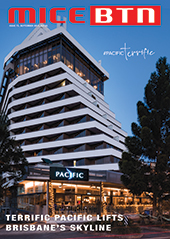Scottish mps approve visitor tax
- BTN News
- Thursday, 30 May 2024
Members of the Scottish Parliament (MSPs) have passed the Visitor Levy (Scotland) Bill, which gives local councils the right to charge visitors for overnight accommodation at hotels and bed and breakfasts, self-catering accommodation, camp sites and caravan parks (but not cruise ships or campervans as yet).
Each local authority would decide whether to introduce a charge - and what the level of the charge should be.
The government also says it will investigate widening the legislation to include cruise ships and motorhomes/campervans.
The Scottish National Party (SNP) Employment and Investment minister Tom Arthur said the legislation, which passed by 83 votes to 27 with four abstentions on Tuesday, would give councils a “significant new tax power”.
Councils intending to introduce a visitor levy must first consult with local communities, businesses and tourism organisations.
An 18-month implementation period then will provide adequate time for councils and businesses to put in place the systems needed to collect levies and administer the scheme.
Many European countries already have similar schemes, while Venice in Italy charges day-trippers EUR5 as part of efforts to control visitor numbers.
Tourism is one of Scotland's biggest industries, but some areas say they do not have the services and facilities to cope with demand.
- The Edinburgh council has been supportive of the idea for about six years, while the Highland Council has calculated it could generate as much as GBP10 million a year from a levy, with the funds earmarked for improving infrastructure such as roads, car parks and public toilets.
- The Western Isles local authority also has suggested visitors in campervans and motorhomes could make a "small contribution" towards the upkeep of services they use through a levy.
- The fee would be a percentage of overnight accommodation costs minus any commission the provider pays to on-line booking services.
- Add-ons such as food and drink would be excluded.
- The accommodation providers would be responsible for collecting










